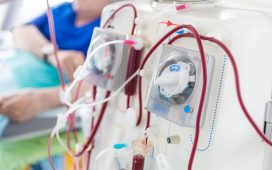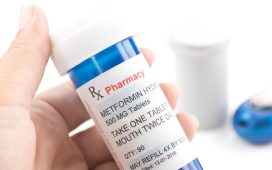Increased risk seen for mortality and for hospitalization, acute kidney injury, chronic kidney disease, bone fracture, bowel obstruction
By Elana Gotkine HealthDay Reporter
TUESDAY, Sept. 24, 2024 (HealthDay News) — For people with an eating disorder, electrolyte abnormalities are associated with death and poor physical health outcomes, according to a study published in the October issue of The Lancet Psychiatry.
Marco Solmi, M.D., Ph.D., from the University of Ottawa in Ontario, Canada, and colleagues conducted a retrospective population-based cohort study in Ontario involving people aged 13 years or older with an eating disorder and an outpatient electrolyte measure within one year to examine the association with mortality and physical health outcomes.
The analyses included 6,163 patients with an eating disorder and an electrolyte measure within one year since diagnosis. The most common electrolyte abnormalities were hypokalemia, hyponatremia, and hypernatremia (50.0, 37.8, and 21.1 percent, respectively). The researchers found that death occurred in 15.7 and 5.6 percent of those with and without an electrolyte abnormality, respectively (adjusted hazard ratio, 1.23). Electrolyte abnormality was also associated with hospitalization, acute kidney injury, chronic kidney disease, bone fracture, and bowel obstruction (adjusted hazard ratio, 1.35, 1.91, 1.44, 1.40, and 1.62, respectively), but not with infection or a cardiovascular event.
“These findings support the importance of regularly monitoring electrolytes in people with eating disorders and promptly correcting any abnormalities found to reduce premature mortality and risk of medical complications,” the authors write. “The severity criteria of eating disorders could be refined to include explicit mention of electrolyte abnormalities.”
Two authors disclosed ties to the pharmaceutical industry.
Copyright © 2024 HealthDay. All rights reserved.








